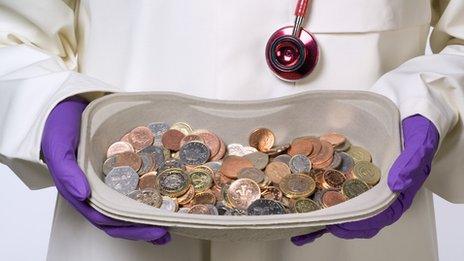NHS trusts' overspend hits £1.6bn
- Published
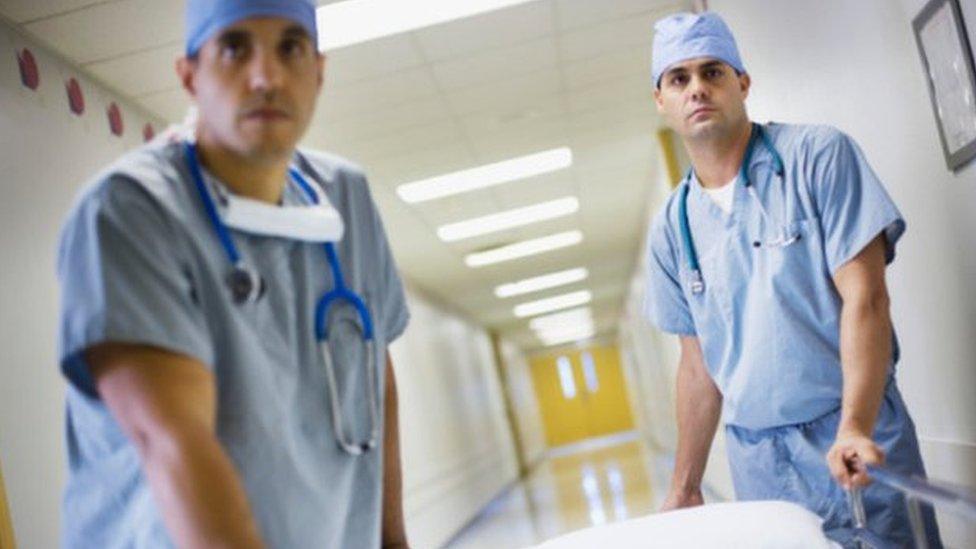
Overspending by NHS trusts in England has risen to £1.6bn this year as concerns about financial problems grow.
The official figures for April to September mark the half-way mark of the 2015-16 financial year - and mean the deficit has grown from the £930m posted in the first three months.
Regulators have described the problems as the "worst for a generation".
The figures cover 241 trusts running hospital, mental health, ambulance and some community services.
Between them they account for about two-thirds of the NHS's £116bn budget - with the rest going on other areas including GPs, drug prescribing and training.
Overall, eight in 10 trusts were in deficit by the end of September.
It means the combined overspend is already nearly double what it was for the entire 2014-15 financial year.
Then, the NHS finished £822m in the red - with the health service as a whole balancing the books only after a cash injection from the Treasury and by raiding the capital budget earmarked for buildings.
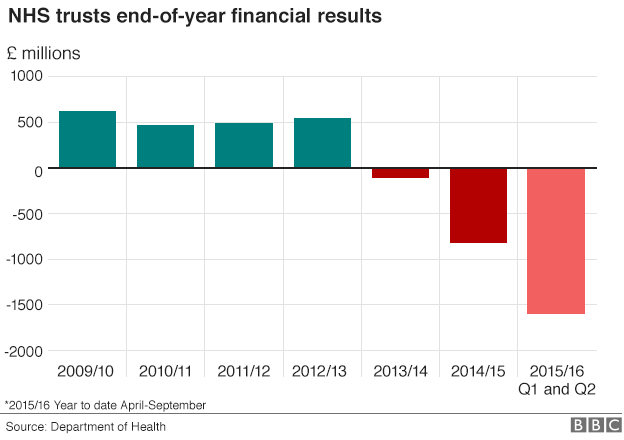
Spending review
Overspending on agency staff has been highlighted as one of the major problems as well as rising demand for services - and there will now be further pressure on health bosses to cut back on spending.
The regulators also warned hospitals were facing growing problems discharging patients - this happens when there are not enough services available in the community either from councils or the NHS to care for the most vulnerable.
The news comes at a difficult time for the NHS. Performance is already suffering with many of the major targets, including ones for A&E, ambulances and cancer care, being missed, while health chiefs are having to prepare for three days of industrial action by junior doctors.
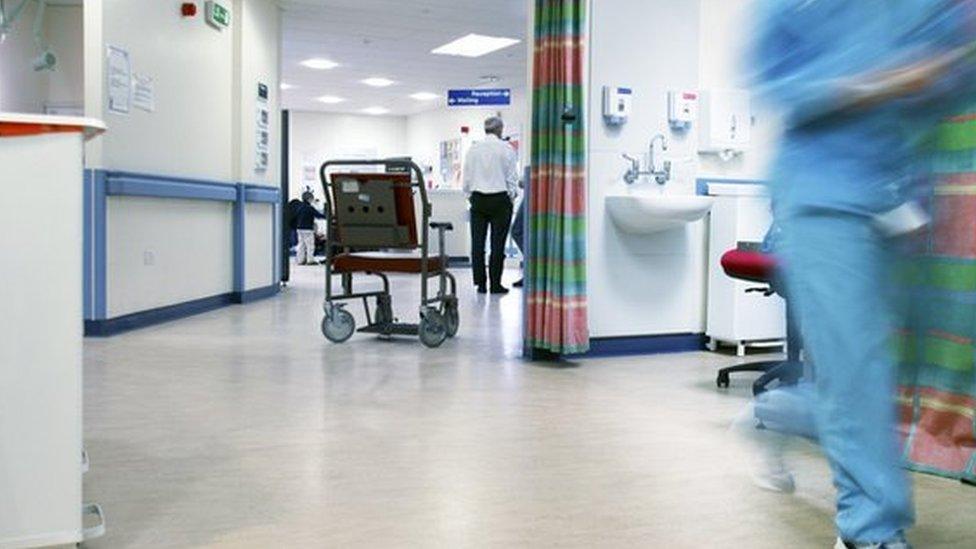
The release of the figures by the regulators Monitor and the Trust Development Authority comes ahead of the spending review next week when Chancellor George Osborne will announced his plans for this Parliament.
The government has promised the NHS an extra £8bn by 2020. Health service leaders have called for that money to be "front-loaded" so that most of it comes in the first few years to help them get on top of the pressures.
Jim Mackey, the incoming chief executive of the regulatory bodies, said the current situation was "really challenging".
Anita Charlesworth, chief economist at the Health Foundation, said: "The figures confirm the truly dire state of NHS finances.
"Next week's spending review needs to address the unprecedented scale of challenge."
Meanwhile, the BBC has learnt that, ahead of the spending review, there is consideration being given to cutting some parts of health spending.
The promises made by government have been specifically aimed at the front-line of the NHS.
The Treasury is understood to be pushing for cuts to public health budgets, held by councils for services such as stop smoking and sexual health clinics and training budgets.
- Published9 October 2015
- Published21 February 2015
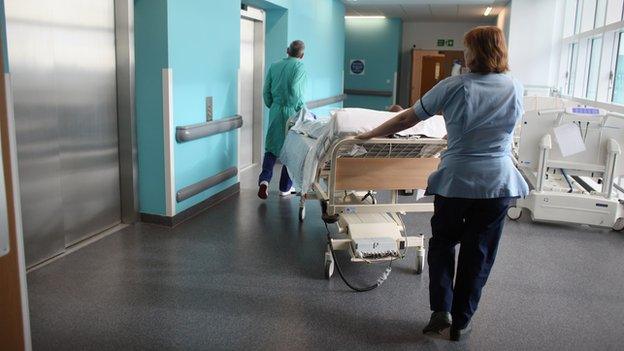
- Published8 March 2014
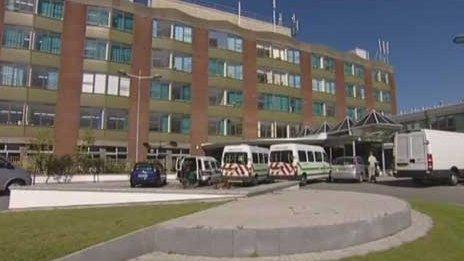
- Published19 September 2014
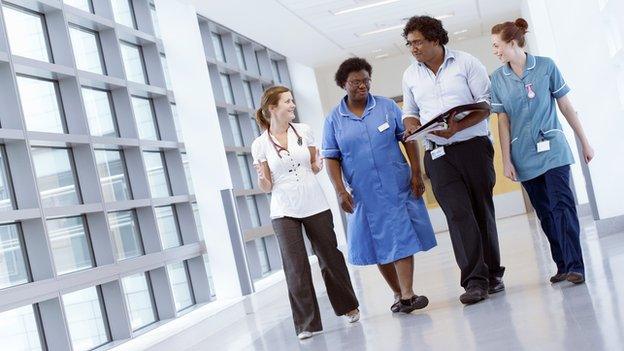
- Published18 June 2014
